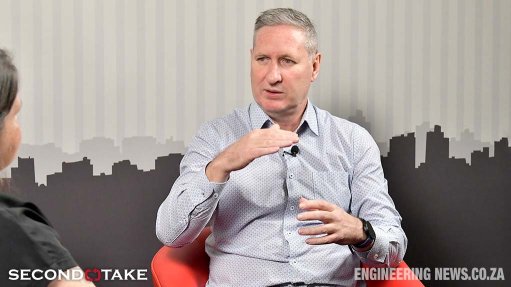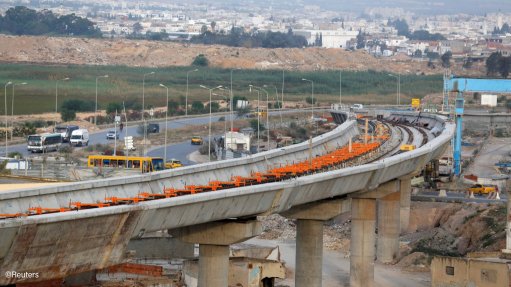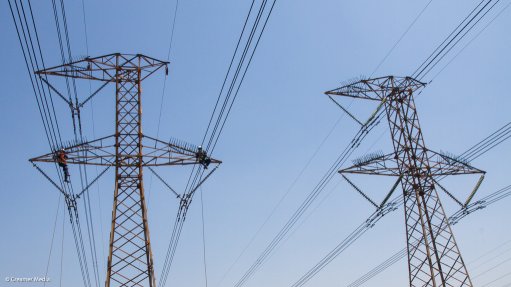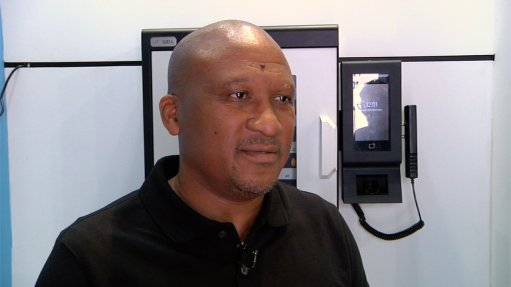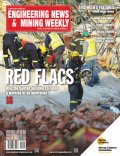Enhancing South Africa's immigration policy for global competitiveness
This article has been supplied.
Opinion editorial by Lunga Mani, Practice Leader for Sub-Saharan Africa
In January, South Africa’s ruling party announced that the country’s immigration laws must be overhauled, as part of a resolution taken by the ANC’s Peace and Stability Commission during its 55th national elective conference.
Over the last decade, protest action surrounding the employment of foreign nationals has been prevalent – with many protestors claiming that these immigrants (legal and otherwise) were robbing South Africans of employment opportunities. This, alongside the number of illegal immigrants entering the country, has already led to various amendments of the immigration law, both policy-related and procedural.
ANC national executive committee member David Mahlobo said legislation needed to be clear on how law enforcement entities deal with asylum seekers, immigrants, and refugees.
However, is a major overhaul of the system absolutely necessary? I believe South Africa has the leading immigration framework in Sub-Saharan Africa. This framework caters for tourism, business travel, research, short term work visits, long term work visits, retirement, and permanent residency. Can it be enhanced? Absolutely. But perhaps “overhaul” may be too strong a word to describe what can be done to address the manyfold concerns of South Africa’s citizenry.
Being wary of promoting xenophobia
The ANC has already suggested it is aware that if it pushes this overhaul too far, it will likely be accused of being xenophobic. However, the party believes that current illegal immigrant concerns are leading to potential instability. As Deputy Minister of State Security and ANC NEC member, Zizi Kodwa, was quoted in December: "Without being xenophobic, we need to create domestic stability in the country. I think an uncontrolled migration and everybody else may create social instability in the country as we have seen now." In a country where xenophobic violence flares up every few years, the language surrounding these laws – and how they are framed to the public – must be sensitively considered. I believe there will have to be a fine balance in terms of making these laws airtight, but without making legal migration to the country more difficult and discouraging the arrival of international talent.
Examining our neighbours’ behaviour
South Africa has the most progressive immigration framework in the sub-Saharan region, as visas cater for the needs of both people and the economy. Most other countries offer only business or entry visas, short term permits for emergency work related to maintenance or repairs of equipment, long-term permits for professional employment, and a residence to enable one to stay whilst employed or studying. Angola has a mandatory ratio of locals to foreign nationals of 70/30. In Mozambique, for a company to qualify to employ a foreign national, a company is required to have employed a certain number of locals and Nigeria requires companies to employ two locals for every foreign national employed. It’s unclear if such stringent legislation would be a benefit to South Africa, which attracts a talented workforce from across the continent and beyond. Instead, perhaps we can lean towards more targeted permits, such as those that cater for semi-skilled work that locals may be less inclined to do. A good example of this is a Rwandan H4 work permit for semi-skilled foreign nationals from any country within the East African Community.
Digitalisation, new visas, and heightening on-the-ground efficiency
Any overhaul of immigration policy must be an evidence-based initiative to ensure that the country attracts and retains the skills it needs.
For any country to deal with huge unemployment that South Africa faces, entrepreneurs must be encouraged to make the country their new home. As such, start-up visa options in targeted areas including fintech, robotics or even nanotechnology can go a long way in attracting and retaining such foreign nationals.
The Department of Home Affairs was recently accused of inadvertently “turning foreign nationals into illegal immigrants”, due to a backlog of more than 56 000 visa applications (across all categories) that was revealed in a parliamentary response. Some procedures around adjudication of applications will need to be reviewed to encourage investments and talent attraction in the country, and hopefully combat illegal immigration.
Digitalisation of the immigration system can also go a long way in making it effective, efficient, transparent, and predictable to its users. Furthermore, a funding model must be designed to ensure that the immigration system is self-funding so that it can keep abreast with technological developments and recruit more employees to deliver services timely. Finally, a trusted traveller programme for some of South African companies or leading global organisations who may need to have their people travelling to South Africa on a regular basis can be go a long in easing mobility to the country.
The question remains, would all of these changes amount to an “overhaul” of the system? Regardless, change is necessary, and could help open doors for investors and bolster employment opportunities in South Africa.
Comments
Press Office
Announcements
What's On
Subscribe to improve your user experience...
Option 1 (equivalent of R125 a month):
Receive a weekly copy of Creamer Media's Engineering News & Mining Weekly magazine
(print copy for those in South Africa and e-magazine for those outside of South Africa)
Receive daily email newsletters
Access to full search results
Access archive of magazine back copies
Access to Projects in Progress
Access to ONE Research Report of your choice in PDF format
Option 2 (equivalent of R375 a month):
All benefits from Option 1
PLUS
Access to Creamer Media's Research Channel Africa for ALL Research Reports, in PDF format, on various industrial and mining sectors
including Electricity; Water; Energy Transition; Hydrogen; Roads, Rail and Ports; Coal; Gold; Platinum; Battery Metals; etc.
Already a subscriber?
Forgotten your password?
Receive weekly copy of Creamer Media's Engineering News & Mining Weekly magazine (print copy for those in South Africa and e-magazine for those outside of South Africa)
➕
Recieve daily email newsletters
➕
Access to full search results
➕
Access archive of magazine back copies
➕
Access to Projects in Progress
➕
Access to ONE Research Report of your choice in PDF format
RESEARCH CHANNEL AFRICA
R4500 (equivalent of R375 a month)
SUBSCRIBEAll benefits from Option 1
➕
Access to Creamer Media's Research Channel Africa for ALL Research Reports on various industrial and mining sectors, in PDF format, including on:
Electricity
➕
Water
➕
Energy Transition
➕
Hydrogen
➕
Roads, Rail and Ports
➕
Coal
➕
Gold
➕
Platinum
➕
Battery Metals
➕
etc.
Receive all benefits from Option 1 or Option 2 delivered to numerous people at your company
➕
Multiple User names and Passwords for simultaneous log-ins
➕
Intranet integration access to all in your organisation









